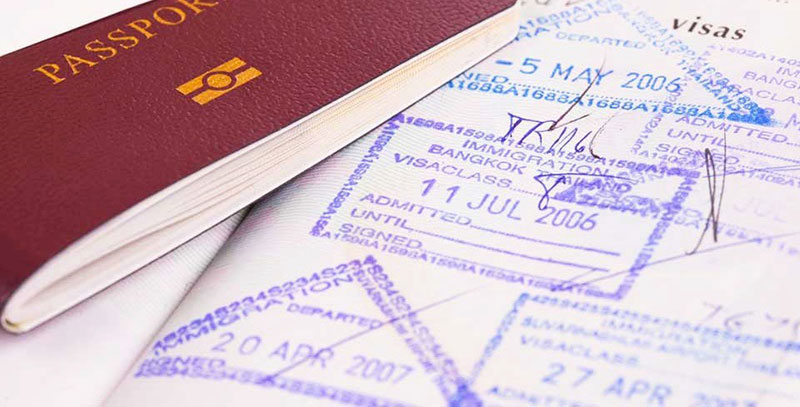Thailand Visa Exemption
Thailand visa exemption (visa-free) regime is the quickest and cheapest way for many nationalities to visit for tourism and short business trips. The rules have changed a lot since 2023 — both the list of eligible countries and the length of stay have been revised — so the practical advice below explains who generally qualifies, how long you can stay, what the immigration officer will expect, special rules for land vs air entry, extension options, and the operational steps to avoid surprises at arrival. I cite official sources and practitioner summaries below so you can double-check the exact rule that applies to your passport on the day you travel.
What the visa-exemption scheme currently is (practical summary)
As of mid-2024–2025 Thailand expanded its visa-exemption program significantly: citizens of 93 countries are eligible to enter Thailand without a visa for tourism and short business visits, and the standard visa-free period implemented with that expansion has been 60 days in many official summaries (with the ordinary option to apply for an extension at a local immigration office). However, Thai policy has been subject to further review and occasional shortening proposals — so always confirm the current period with the Thai embassy or consulate that serves your country before booking.
Key practical point: the basic visa-exempt stay is typically granted at the port of entry (immigration officer stamp). Extensions, border-crossing frequency limits and whether the stay applies differently by air versus land can vary by nationality and over time (see below).
Who is eligible
The MFA/consular materials list specific countries and territories eligible for visa exemption; eligibility depends on your ordinary passport (diplomatic/official passports often have separate bilateral lists). The official lists are published and updated by Thai embassies and the Ministry of Foreign Affairs — check your embassy’s page for the current roster before travel. The consolidated list used since 2024/2025 names 93 nationalities, including most EU countries, the UK, Australia, Japan, South Korea and many ASEAN and Commonwealth countries.
How long you can stay (and extensions)
-
Typical period: many eligible visitors receive a 60-day stay on arrival under the expanded program, with the option to apply for an additional 30 days at a local immigration office (grant of extension is discretionary). That can give up to 90 days in total if the extension is approved.
-
Policy fluctuations: authorities have discussed reverting or adjusting the visa-free period in response to security and policy concerns; some media and legal updates have reported proposals to reduce the visa-free period (for example, to 30 days) for certain nationalities. Because these changes are live, check the embassy/MFA notice for your home country before travel.
Air vs land entry — important operational differences
Thailand frequently treats air and land entries differently for visa-exemption purposes:
-
Some nationalities face restrictions at land borders (e.g., number of visa-exempt crossings per calendar year or reduced permitted stay by land) while the same passport may get the full allowance if arriving by air. Many embassies explicitly warn that visa-exempt entries by land are limited to twice per calendar year for some countries. Check the entry-rules for your intended border crossing.
What immigration officers will normally ask for at arrival
Expect a standard set of checks at the immigration counter:
-
Passport valid for at least 6 months (some officers are stricter, check your consulate guidance).
-
Return / onward ticket showing exit from Thailand within the allowed period.
-
Sufficient funds evidence — although rarely enforced, be ready to show cash or bank statements (some countries list a minimum amount).
-
Accommodation address in Thailand (hotel booking or local host).
-
ETA / pre-enrolment (see below) if required by the current administrative rule.
Failure to satisfy the officer’s queries can result in entry denial even if your nationality is on the visa-exempt list.
Electronic Travel Authorization (ETA) and pre-enrolment
Thailand has introduced an Electronic Travel Authorization (ETA) / registration requirement for visa-exempt travelers in recent rollouts. Selected embassy guidance and official notices indicate that travelers under the visa-exemption scheme may be required to register online (ETA) in advance from mid-2025 onward. Confirm whether you must apply for an ETA, the timing window for submission, and any fee. If an ETA is required, bring the ETA confirmation to the airport to speed processing.
Extensions, overstays and penalties
-
Extension: Apply at a local Immigration Office; the standard requested extension for tourists is 30 days. Granting is at the discretion of immigration. Bring your passport, departure card (TM6), proof of accommodation and onward ticket.
-
Overstay penalties: Overstaying is a strict offence — fines accrue per day (and may lead to blacklisting, deportation, or a ban on re-entry for repeated or long overstays). Always plan exit / extension well before expiration.
Common practical traps and how to avoid them
-
Assume nothing long term. Visa-exemption is for short stays; if you plan to work, study or stay long term, arrange the correct visa in advance.
-
Double-check the entry point rules. Land crossings can have stricter rules than airports. If you plan multiple border hops, confirm limits.
-
ETA / pre-registration: if an ETA is required, apply before travel — some missions now ask travelers to enroll online.
-
Evidence on arrival: carry an onward ticket, hotel booking and modest proof of funds; a scanned copy in email is usually fine.
Quick operational checklist before you travel
-
Check your embassy’s Thailand page for the up-to-date visa-exempt country list and allowed stay. (Use the MFA/consulate page serving your country.)
-
Confirm whether ETA pre-registration is required and complete it if so.
-
Decide arrival point (air vs land) and confirm any border-specific limitations.
-
Bring onward/return ticket, proof of accommodation and modest funds evidence.
-
If you need more than the visa-free period, apply for a tourist visa before travel or plan an immigration-office extension early.
Final note
Thailand’s visa-exemption regime is traveler-friendly but has been evolving quickly. The expansion to a larger list of nationalities and longer stays has made travel easier for many, but proposed policy adjustments (and added digital pre-registration requirements) mean the rules you see today could change. Always confirm the current rule with the Royal Thai Embassy / Consulate that serves your passport and get ETA/entry guidance from official channels before you travel.


